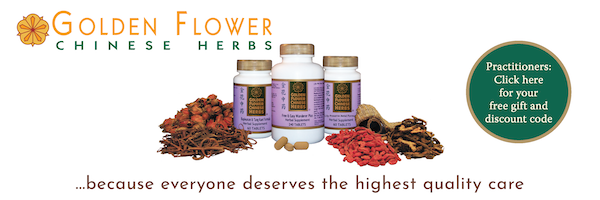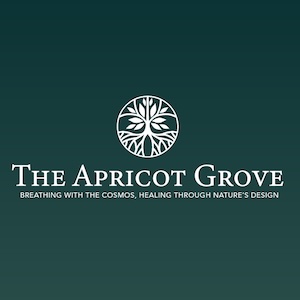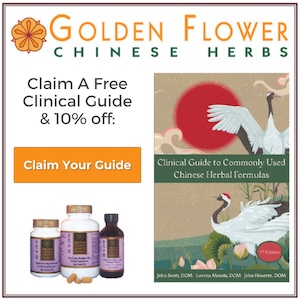The Chinese and people of East Asia deal with epidemic disease on a regular basis. And every time a new bug comes to town, they learn a little more.
While we in the west have access to some of the classic materials on treating epidemics, we don’t have the same level experience. It’s not really our fault, epidemics don’t roll through here in the west as often, and even during the cold and flu season most people don’t seek us out first. So our skills are not as polished as we’ve not had the experience to hone our clinical skills.
In this speical edition conversation with Thomas Avery Garran and Shelley Ochs we discuss their new eBook on Chinese medicine and Covid-19.
Listen in to this conversation on how the Chinese are using traditional medicine at a scale we simply don’t see here in the west.
In This Conversation We Discuss:
- Introduction and How Shelly and Thomas ended up in Beijing
- Working on their book about growing herbs
- How did they write the COVID book
- How to treat millions of people with herbs
- How did those on the front lines stay healthy?
- Are China’s numbers accurate?
- Treating patients as they should be treated
- Shelby and Thomas’s thoughts on the future of Covid and possible future waves
- Important steps for immunity in Chinese medicine
- Adjusting to treating during a pandemic
- What have you learned from doing this book?
Always listen to your patients with a empathetic and compassionate heart. Be willing to make a mistake, and more importantly, be willing to admit it and learn from it. We are all practicing.
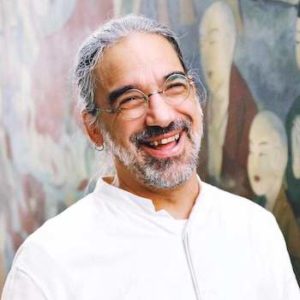 Thomas Avery Garran, P.hD
Thomas Avery Garran, P.hD
I’ve been at this herbal medicine thing since I bought my first herb book in 1989 while traveling to California. Not long after that, I found Chinese medicine and instantly fell in love. I’ve never looked back and now integrate my initial love of herbs with Chinese medicine, which can be found in my first two books about using Western herbs in Chinese medicine (2008 & 2014). In fact, my PhD work here in China was a comparative study of history, genetics, and chemistry of European motherwort and Chinese motherwort.
I believe that the system of Chinese medicine is awesome and beautiful, and evolving. I enjoy learning about how others have interpreted our medicine’s theory and find the study of how plant usage has changed over time fascinating and insightful. These are the pillars that inform me when I write a prescription; the understanding of how the theories and application of medicinals has evolved and must continue to do so to stay relevant.
In recent years I’ve become more involved with farming herbs including the practical and research aspects of that profession, which has captured my heart; the translation of Growing Chinese Herbs (2019) was a step to begin to bring authentic cultivation information to the English reader. While I continue to study and write about application of herbs, I have shifted a significant amount of energy to the production of our medicinal plants, from seed to finished product. This, I believe, is a major part of Chinese medicine that is missing outside of China and I am working to change that even as you read this.
Trust your sensory perceptions. We encounter patients with all of our faculties and being open to the full range of information they give us makes us the best practitioners we can be.
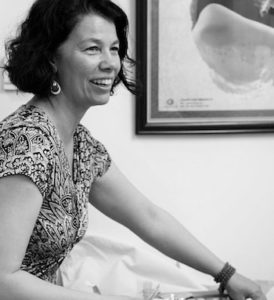
Shelley Ochs, Ph.D.
My first encounter with Chinese medicine was as a patient in Taizhong, Taiwan back in 1989 when a friend of mine strongly suggested I go to see his Chinese herbalist to help me with the recurring upper respiratory tract infections I was suffering from. The herbs worked like a charm and I was so impressed that I made him my family doctor from then on. That same friend later attended my graduation from ACTCM in San Francisco in 2000.
Before and after graduation, I was very fortunate to be able to work in free or low-cost clinics serving anyone who walked in the door, often including homeless people and those with a dual diagnosis of mental illness and drug addiction. I learned what acupuncture can do when it’s all you have. It was heart-wrenching work at times, but what I learned there about being a doctor is still with me today.
It’s been thirty years since I first began studying Chinese, and it’s led me through literature and politics to medicine, and finally to history and translation studies. My initial motivation was simply a desire to better understand the people who were a part of the dynamic culture and society of Taiwan in the early 90s. Later, as I entered the stream of classical Chinese medicine, I wanted to know how we might participate in a conversation with the recorded tradition that still informs and inspires many of our colleagues and teachers. I hope that my current work will help bring people who do not read Chinese into a more meaningful engagement with this living tradition.
In 2013 I completed a Ph.D. in the History of Chinese Medicine, focusing on what the legend of Bian Que tells us about cosmology and the origins of acupuncture in China. I plan to expand this now that more material has been excavated and write it up in English. More immediately, I am collaborating with others here in Beijing to translate texts that are both clinically and philosophically relevant to practitioners around the world.
Links and Resources
Download and read Chinese Medicine & Covid19, and donate to help support the work.
Visit Thomas’ Passiflora Press website for more information on the growing, research and production of Chinese herbs








